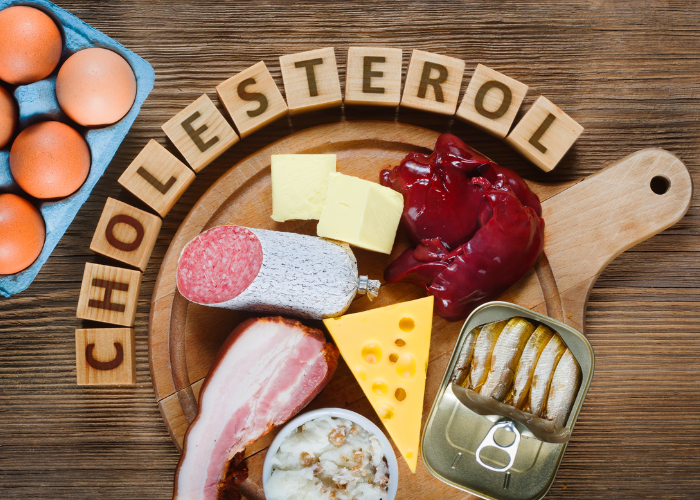IMANA NEWS
Why is National Cholesterol Education Month Important?
22 September 2025

Cholesterol is one of the more misunderstood substances in the human body. Most of us naturally associate it with an increased risk of heart attacks and strokes. But too few are aware that we need a steady supply of “good” cholesterol to support crucial functions.
This is among the several reasons why having a National Cholesterol Education Month is so important. It’s an occasion that allows health-focused organizations like IMANA to raise awareness about the risks and dangers of the “silent killer” as well as clear up confusion among patients.
This September, we’ll answer key questions like: How much cholesterol is too much? When should you get tested? What are the risks? And more.
Why A Cholesterol Education Month Exists
High cholesterol doesn’t come with sharp pain or glaringly obvious symptoms. But the risks of ignoring its levels are too high. Cholesterol is one of the most prominent triggers for heart disease, which, in turn, is the leading cause of death in the U.S.
How bad could it be? In 2022, the CDC said cardiovascular disease claimed a life every 34 seconds. Clearly, this is no figure to scoff at. It’s also why we recognize September as cholesterol education month.
The initiative has its roots in the 1980s. Back then, the National Heart, Lung, and Blood Institute realized more needed to be done to combat this silent killer. The National Cholesterol Education Program was born as a result.
Since then, organizations have used the program to highlight the dangers of a high lipid count. Some host screenings, others promote healthy habits. Along the way, each shares a message that’s just as urgent today as it was forty years ago.
Is Cholesterol “Good” or “Bad”?
Despite the bad rep it gets, all cholesterol isn’t necessarily harmful. Certain amounts are required to help your body produce hormones, vitamin D, and new cells. That said, the type and amount of cholesterol matter. The two prominent kinds are:
- LDL (Low-Density Lipoprotein): Also known as “bad” cholesterol, this substance sticks to the walls of your arteries and forms plaque. It restricts blood flow and increases your risk of heart attack or stroke.
- HDL (High-Density Lipoprotein): is “good” cholesterol. It removes excess cholesterol from the bloodstream by carrying it back to the liver, where it can be processed and flushed out.
Both high levels of LDL and low HDL can lead to dangerous blockages in your arteries. Clearly, maintaining a balance is key. However, the American Heart Association finds that of the 73.5 million adults with high LDL, only about a third have the condition under control.
What Are the Health Risks?
High cholesterol rarely causes symptoms on its own. But leaving it unchecked for long periods can be devastating. Some outcomes associated include:
- Coronary artery disease
- Heart attacks and strokes
- Type 2 diabetes
- Peripheral arterial disease
- High blood pressure
In many cases, individuals don’t realize their cholesterol levels are too high until they’re undergoing treatment for a condition, or are in the emergency room.
As for what causes it, there’s no lack of options. High cholesterol levels can be caused by a poor diet, lack of physical activity, obesity, genetics, or smoking.
Regular screenings are the only way to know where you stand.
Should You Get Tested?
The Centers for Disease Control says everyone over 20 should have their cholesterol checked at least once every five years. But more frequent testing may be recommended to those with:
- A family history of high cholesterol or heart disease
- High blood pressure or diabetes
- A history of smoking
- A BMI that classifies as overweight or obese
Measuring levels is easy. Doctors will use a standard lipid panel blood test to track LDL and HDL levels. This test can be done at a community health clinic, or during a physical examination — both of which are routinely offered every September.
How Can You Lower Cholesterol Levels Naturally?
The best way to manage cholesterol levels is to make minor adjustments to your lifestyle. Many patients find that simple dietary changes do the trick. Others may have to focus more on:
- Staying active: Regular movement (up to 150 hours a week) lowers LDL levels.
- Drinking more water: 8 glasses of water a day keeps cholesterol away.
- Avoiding tobacco and alcohol: Smoking damages your blood vessels and lowers your good cholesterol. Excessive alcohol does the same.
- Managing stress: Chronic stress may indirectly raise cholesterol by promoting unhealthy habits like poor eating or lack of sleep.
In some cases, it may not be possible to naturally lower cholesterol levels. Doctors may instead recommend medication like statins. However, these are recommended only based on your individual risk factors and cholesterol levels, and should never be self prescribed.
This September, Get Involved
Cholesterol awareness shouldn’t stop at the clinic. Every person can play their part in raising awareness and encouraging healthy habits. During this National Cholesterol Education Month you can:
- Get a screening.
- Spread awareness.
- Encourage healthy diets and habits.
- Consult online tools and resources (such as these printable sheets published by the American Heart Association, or an IMANA webinar)
High cholesterol is common, but it’s also manageable. So this September, take the time to get tested, and encourage your peers to do so as well. If your numbers are high, don’t panic. There are plenty of ways to bring them down.
At IMANA, we usually remain committed to delivering trusted medical guidance and community outreach throughout the year. But this September, we invite you to join us in focusing on heart health — one small step at a time.